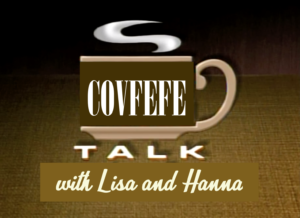From “Covfefe Talk” to Covid 19 January 18, 2021
Posted by lborodkin in : Ethics , add a comment
It seems almost quaint to think in terms of the self-regulating nature of the attorney profession in light of the January 6, 2021 armed insurrection on the US Capitol, and the need to de-platform the President of the United States from the major social media products, Twitter and Facebook. However, these events exposed major fault lines in the way the general public view the operation of the First Amendment. Many claimed the right to be heard on private commercial web-based social media products. In such times, who would the public trust to explain the boundaries of such legal rights? Attorneys — one would hope.
In March 2019, I presented a Continuing Legal Education panel at the SxSW festival with Hanna Shafran on social media ethics for lawyers. Entitled “Covfefe Talk: Social Media Ethics Rules for 2019,” (audio replay can be found here), Hanna and I ran through a number of ethics scenarios presented by attorneys’ use of various forms of social media. In 2019, how attorneys should deal with online disinformation (TLDR for attorneys: don’t) seemed more like esoteric trivia rather than a potentially life-threatening epidemic.
Yet it has been repeatedly reported, with increasing levels of alarm, that the spread of online disinformation represents a chronic threat to the health and safety of the general public. For most of 2020, I was concerned about the spread of dangerous anti-scientific conspiracy theories with regard to Covid-19. But in early 2021, an even more shocking rupture in occurred. The failure of the three branches of the US government to operate as a check and balance on the spread of disinformation, in turn fueled the Capitol riots. The fact that Facebook and Twitter were able to do what Congress and the US Courts could not (stop the President of the United States from spouting dangerous conspiracy theories in real time) should cause every attorney in America to ask, “How did we get here?” and “How can we guard against the inevitable repetition of such events?”
The legal profession, in fact, has a number of ethics rules and procedures in place to monitor and discipline such lapses as would cause society to lose faith in the legal profession, as Hanna and I discussed at SxSw. It is the duty of the members of our profession to know and use these ethics rules in these times. The recent proceeding to disbar Rudy Guiliani will be watched closely. However, it is only a start. To paraphrase Edmund Burke, the only thing necessary for the triumph of evil is for good people to do nothing. We should start by knowing the ethics rules, applying them scrupulously, and calling in appropriate circumstances for the application of those rules to deter abuse of the public trust.
An alarming number of highly-placed members of our government with extremely sophisticated and prestigious legal training nonetheless participated in an ideological assault on our very form of democracy by objecting to the election results. They know better. As lawyers, we cannot just look the other way. It is essential to the survival of our profession that we, as lawyers, call out their wrongdoing and live these principles ourselves. Otherwise, why should the public trust us?
This Week in Law 427: World War Gen Z, AT&T and Time Warner Merger Decision Fisking June 27, 2018
Posted by lborodkin in : Uncategorized , add a commentHad a great time as always guest hosting on my favorite law netcast, This Week in Law, with Denise Howell and J. Michael Keyes, on June 22, 2018. Glad I could discuss Deep Fakes, “Gen Z” (persons between 13 and 23), Hamilton, ticket-buying bots, the Music Modernization Act and more.
What was yesterday’s “Mergers of Dystopia” (This Week in Law 247, February 21, 2014) is today’s At&T-Time Warner Merger, plus bonus California Net Neutrality Bill dilution.
Watch the replay here:
This Week in Law 427 with Denise Howell, Mike Keyes and Lisa Borodkin “World War Gen Z”
Oh, and p.s. don’t call it Velcro. It’s “hook and loop.”




 del.icio.us
del.icio.us flickr
flickr LinkedIn
LinkedIn Twitter
Twitter


